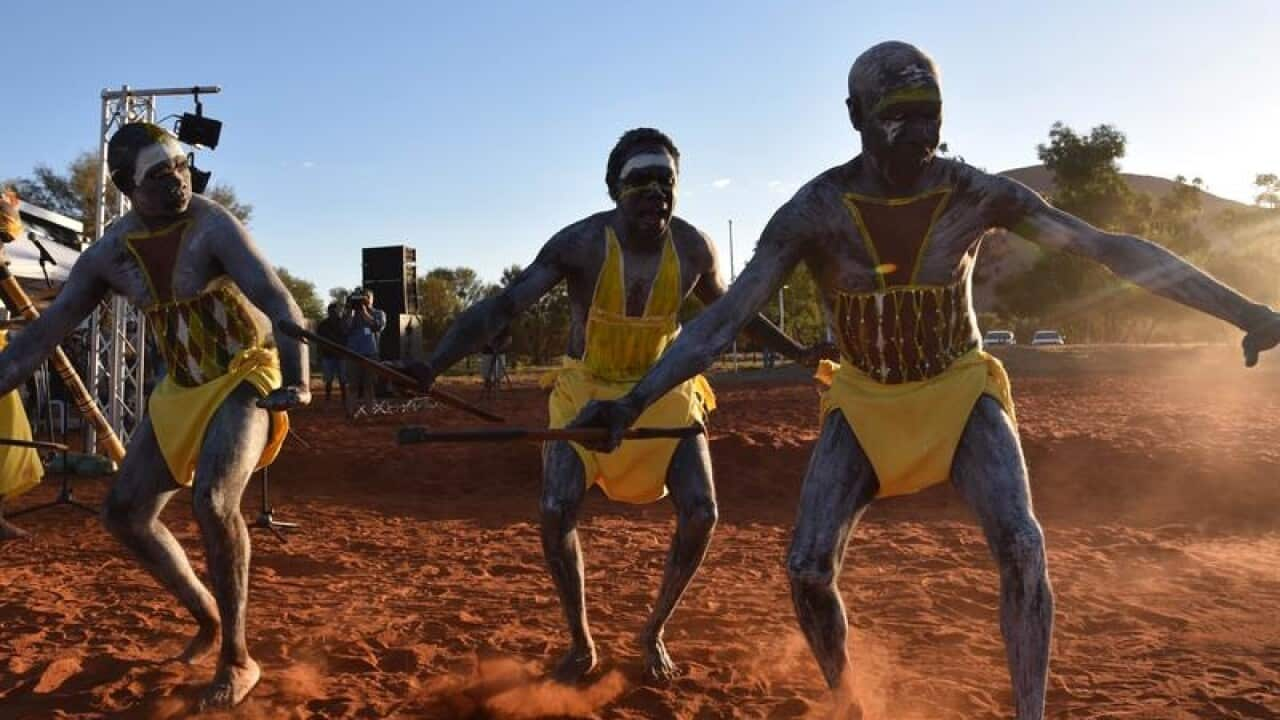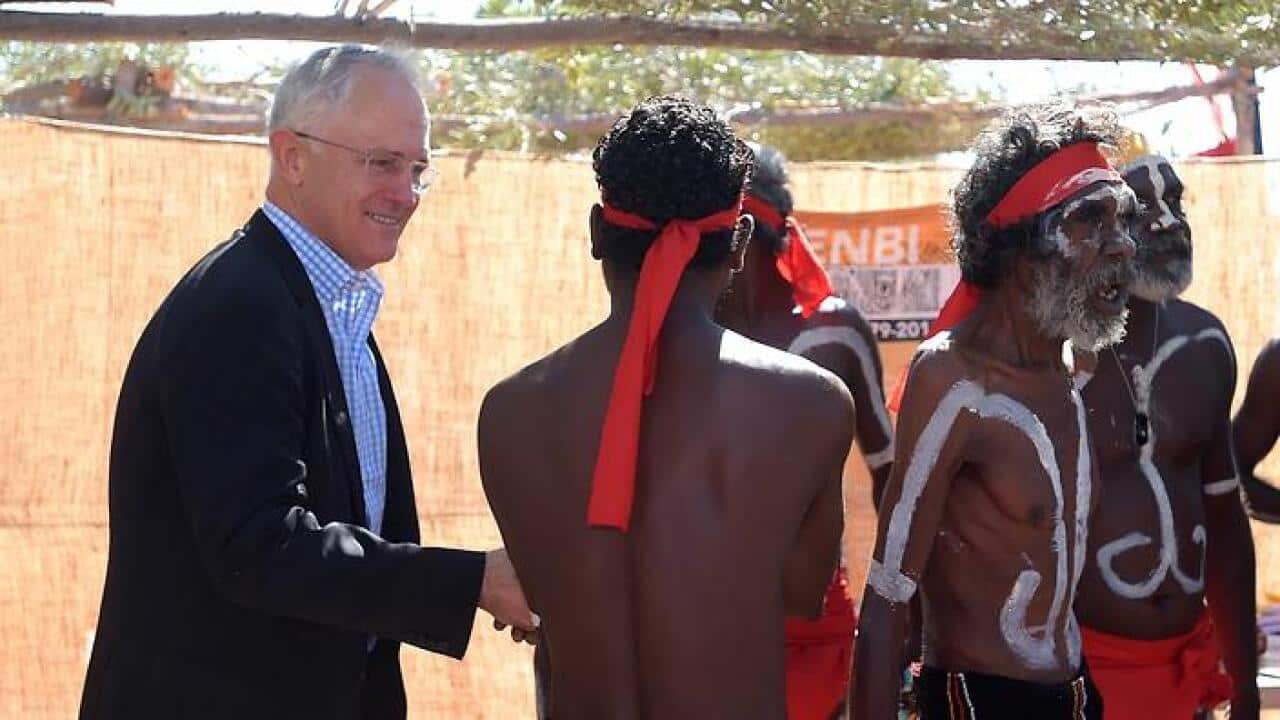Is constitutional reform dead in the water, gone to God, no more?
If you believe the former Indigenous Advisory Council Chair, Warren Mundine, an Indigenous voice to Parliament was never going to fly. It's an opinion he's held for the last two years.
"I knew that was never gonna happen. There are two levels you gotta work on, one is the Parliament. The parliamentary level is that you gotta get both sides of politics to agree to it," Mr Mundine told NITV.
The Referendum Council was jointly appointed by Prime Minister Malcolm Turnbull and Opposition Leader Bill Shorten in 2015 to steer a way forward on constitutional reform.
It was a bipartisanship, that according to Mr Mundine, was never sincere.
"Well, there was, but there isn't now. Can I be quite honest with you? There was never bipartisan support. I sit and drink with these people," he said.
Last week, Mr Turnbull rejected the Council's proposal for a voice to Parliament, saying such a body would not succeed at a referendum.
The decision left many angered and disappointed, including Council Co-chair Pat Anderson.
"It's been a kick in the guts for us all, and of course now the Prime Minister has turned himself into the latest mission manager. He knows what's best for us but also he's omniscient because he knows how the Australian public are going to vote at a referendum," she told the ABC last week.
"He's broken the bipartisanship he had with the other major party, the Australian Labor Party, so it's been a bad couple of days," she said.
Indigenous WA Labor Senator Pat Dodson was also frustrated.
"There is nothing honourable about what's happened here. And certainly to then come back and say they made a judgement that a proposition that has been put by the First Nations people would not pass the referendum test, now, who knows that?" he said.
The rejection comes after months of community dialogue around the country which culminated in a historic gathering at Uluru of First Nations people.
The First Nations Convention saw more than 250 delegates gather in the red centre, over three days, to agree on a way forward. It resulted in the Uluru Statement from the Heart.
The statement rejected the idea of simple recognition of Indigenous peoples in the Constitution and instead called for an Indigenous voice to Parliament and for a process to be established towards treaty-making.
Now, the government's decision not to back the proposal has left many wondering if it was a waste of time.
"Number one of our terms of reference was to go out and ask Aboriginal and Torres Strait Islander people what we wanted, we told him (Mr Turnbull) and he said, 'nope, we're not doing that', why ask us? Just do it like generations of decision-makers have been doing to us. We've been kicked the guts before, do not ask us if you do not want to hear what've got to say," Ms Anderson said.
Journalist Jeff McMullen says the government was merely paying lip service.
"The Prime Minister has tried to assuage the difficulty of outcry from sections of the Australian community but there is no forging of common ground, there is no genuine bipartisanship. The only bipartisanship that I can see applied to First Peoples is to agree to control the First Peoples of this country," he told NITV.
"This coalition government that has strong National opposition to any Aboriginal progress to these fronts was never likely to approve meaningful recognition through the Constitution," he said.
Indigenous Affairs Editor at the Australian, Stephen Fitzpatrick, says a political rift within the Coalition may have also contributed.
"I think it was an issue of internal Liberal fighting and Malcolm Turnbull appears to not really have been strong enough to stand up to [the] opposition in the party room," he told NITV News.
Earlier this week, it was revealed that in a meeting with the Council last year, the Prime Minister told members the proposal had "a snowflake's chance in hell" of getting up.
"I understand this angered a number of Referendum Council members because they were left wondering, 'well why are we bothering?' and there was also a suggestion at that time that there'd been a done deal between the government and the Opposition that this would never get up," he said.
In May, the then Deputy Prime Minister Barnaby Joyce was dismissive of an Indigenous body.
"If you overreach and ask for something that will not be supported by the Australian people, such as another chamber in politics or something that sits beside or above the Senate, that idea just won't fly," he said.
But Mr Fitzpartick said a recent poll from the Fairfax newspaper showed more than 60 per cent of Australians, and in a majority of states, were supportive.
"They [government] has spoken on behalf of the Australian people without actually asking the Australian people what they think by holding a referendum," he said.
But it appeared from Barnaby Joyce's comments, the idea of an Indigenous Voice to Parliament was over. Even the Labor Party had its misgivings.
Indigenous Labor MP Linda Burney said the Council's proposal was limited.
"The fact that the Referendum Council has not recommended that we deal with the race powers is why I'm saying its fairly limited," she told ABC Radio in July.
But a few weeks later, at the Garma Festival in Arnhem Land, the Opposition offered a proposition, with Bill Shorten announcing his party's support for the proposal.
"Voting for a constitutional voice is our chance to bring our constitution home, to make it better, more equal, more Australian" and "Aboriginal Australians do not need a balanda [white person] lecture about the difficulty of changing the constitution," he said at the time.
Mr Shorten proposed a bipartisan parliamentary committee to finalise the recommendations, in consultation with Aboriginal voices, with a view to completing a referendum proposal by the end of the year.
It may be a while before any action is seen on the way forward, but some say the rejection could lead to something positive.
Long-time activist and Palawa elder, Michael Mansell, says it provides another opportunity.
"There is an opportunity for the government and opposition to join forces and pass legislation that would that establish a credible representative national aboriginal body that would take over Aboriginal affairs and policy from Prime Minister and Cabinet," he told NITV.
Mr Mansell says such a legislated body would not need to go to a referendum.
"They don't need any long-term effects. They can simply be set up now through legislation and we can all get on it."
Jeff McMullen says the only real option now for First Nations people is to not rely on a political process that is stuck.
"You have your sovereignty, you stand on your lands, you know your rights. Asserting those rights is intellectually clear, accommodating a system that really looks right through you and does not respect your voices is really likely to result in the same historical pattern."













